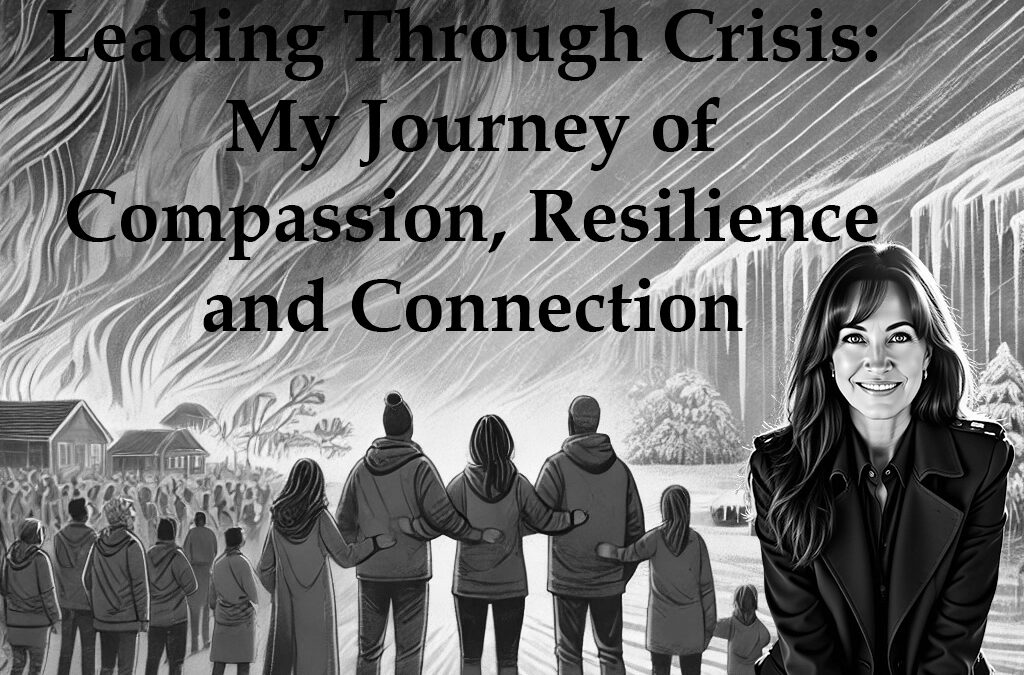How I Lead Through Crisis: My CIO Journey of Compassion, Resilience, and Connection
Throughout my 30-year journey as a technology executive, I’ve witnessed firsthand how many people—both in the boardroom and beyond—are silently weathering their own personal and professional storms. In these moments of adversity, I’ve come to realize that true leadership goes beyond technical expertise and strategic decision-making. It becomes an act of deep humanity, requiring empathy, resilience, and a steadfast commitment to connection.
As a leader, I’ve leaned into these values to guide my teams through uncertainty, fostering a culture where every individual feels seen, supported, and valued. Here are some ways I’ve learned to lead with compassion, cultivate resilience, and forge meaningful connections even in the most challenging times.
1. The Role of Leadership in Crisis
Crises test the limits of our resilience and the strength of our communities. For leaders, this is a moment to rise to the occasion by showing understanding and flexibility. Here’s how:
- Be present and empathetic: Take the time to check in with your teams. A simple, heartfelt “How are you holding up?” can go a long way in letting people know they’re not alone.
- Communicate clearly and frequently: In times of uncertainty, transparent and consistent communication builds trust. Acknowledge challenges honestly while offering hope and direction.
- Adapt expectations:Recognize that crises can impact productivity, focus, and mental health. Adjust goals and deadlines to reflect the realities your team is facing.
2. Building Resilience Through Community
Resilience doesn’t happen in isolation; it’s strengthened through connection. Whether in our professional lives or personal networks, community support can be a powerful antidote to adversity.
- Foster a culture of care: Encourage your team to support one another, creating a sense of belonging. This could include virtual coffee breaks, peer mentorship, or simply promoting a safe space for sharing struggles.
- Support local and global efforts: Highlight ways your organization can contribute to relief efforts, whether by volunteering, donating, or raising awareness. When people see their work making a difference, it instills a sense of purpose and hope.
- Leverage technology to stay connected: For remote or hybrid teams, utilize collaboration tools to foster camaraderie and ensure that no one feels isolated.
3. Mindful Technology Leadership
As a CIO, I’ve seen firsthand how technology can be a lifeline during crises. Thoughtful implementation of tools and platforms can ease burdens and offer much-needed support.
- Enhance collaboration: Equip teams with intuitive tools that enable seamless communication and cooperation, regardless of their location.
- Support mental health: Share resources, such as mindfulness and wellness apps, that can help employees manage stress and anxiety.
- Prioritize safety and continuity: Implement or improve emergency response systems to protect employees and maintain operational stability.
4. Practicing Self-Compassion
Leadership in times of crisis demands an enormous amount of emotional energy. To be effective, we must first take care of ourselves. Remember that self-compassion is not a luxury—it’s a necessity.
- Make space for mindfulness: Start your day with a few moments of reflection or meditation. This small practice can help ground you amidst chaos.
- Set boundaries: It’s okay to step away to recharge. Model a healthy work-life balance for your team by showing that rest is essential.
- Seek support: Lean on trusted colleagues, mentors, or professional networks for guidance and encouragement. Leadership is not a solo journey.
Call to Action: Share and Connect
In times of crisis, our collective strength lies in our ability to come together as one. I invite you to share your stories of resilience or small actions you’ve taken to help others during these challenging times. Whether it’s a moment of kindness, a lesson learned, or an innovative solution, your experiences can inspire and uplift others.
Conclusion
Crises are defining moments—not just for individuals, but for organizations and communities. They challenge us to lead with empathy, to connect with intention, and to embrace resilience in the face of uncertainty. While we cannot always control the storms around us, we can choose how we respond. Together, we can navigate these turbulent times with grace, courage, and hope.
Let’s lead the way forward, one compassionate act at a time.
Article written by Christine Moffett
Christine stands out as a distinguished executive and technology innovator, dedicated to fostering unity among global tech leaders. Her mission is to inspire a culture of gratitude and balance, encouraging individuals to lead lives that harmoniously blend professional achievements with personal fulfillment.
Connect with Christine on LinkedIn


